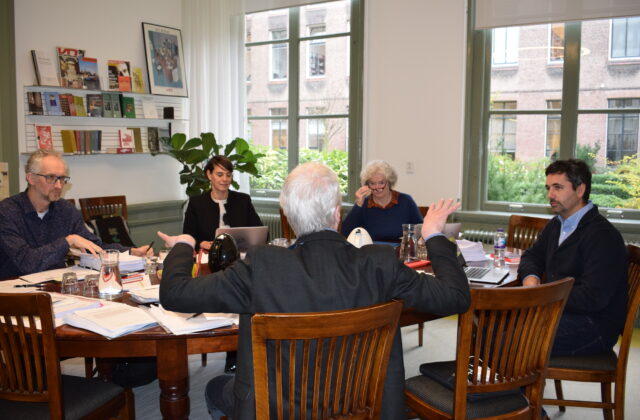What does the AAB do exactly? How do you go about selecting the fellows?
The AAB reviews all proposals as well as reviews of all external reviewers. Based on this input they have a discussion which proposals should be awarded. Although the quality of the proposal is leading, we do accommodate several factors, such as regional, age and gender distributions. Of course, reviewers may have different opinions, therefore in the process we weigh the quality of the reviews too.
You have been chair for four years. Have you seen any significant changes or shifts over these years?
We are receiving many more proposals, from more disciplines and regions of the world, and perhaps even more importantly many more high-quality proposals. NIAS has become a very attractive location for many people.
What are the challenges that you come across as part of the selection procedure?
The main challenge is that there is limited space, while we have many excellent proposals. The selection process is therefore a difficult one, and often needs an in-depth discussion in which we must weigh many factors mentioned above. I can say that in the end, board members often agree.
How do you see the future of Institutes for Advanced Study?
The future is bright. These institutes are very important for providing spaces for finishing a book or setting up a new project. They are generating interdisciplinary conversations and open new avenues for research. I am often impressed by proposals; a lot of new thinking and exploration goes into them. For this reason, it has been such as pleasure to serve on the Board, it is inspiring and gratifying to get learn about innovative scholarly work.
What has been the most remarkable or memorable moment from these past years?
There is not one moment. What has been remarkable is the collaboration within the Board. Although we face a difficult task and come from a wide range of different disciplines and backgrounds, we have an excellent discussion in which we reflect on our own bias as well as explore many aspects of proposals. I am proud and grateful to have been put in the position to work with such an excellent team.
About the Academic Advisory Board
The Academic Advisory Board (AAB) has the task of advising the NIAS Directorate on the selection procedure and to rank applicants. They rank the top 75 applications that have received excellent reviews by external independent reviewers.
Members of the Academic Advisory Board are:
- Professor Johan Schot, Utrecht University, History of Global Comparative History (chair)
- Prof Pablo Valdivia Martin, University of Groningen, Cultural Studies
- Dr. Bernike Pasveer, Universiteit Maastricht, Technology, Science & Society
- Professor Erika Kraemer-Mbula, University of Johannesburg, Business and Economics
- Professor John R. Bowen, Washington University in St. Louis, Anthropology
- Professor Joyashree Roy, Asian Institute of Technology, Economics




